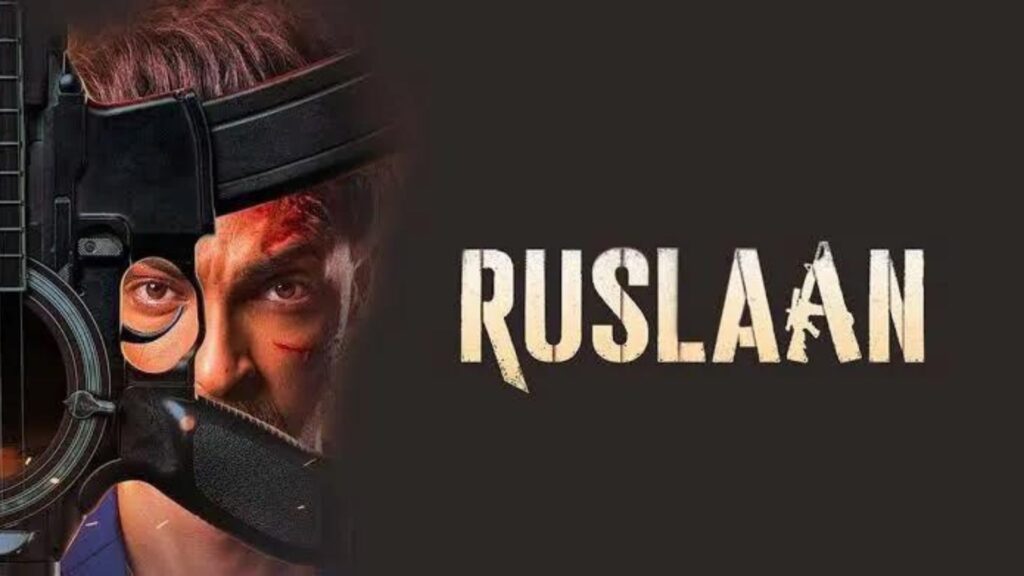“Ruslaan: Action-Packed Heroism Fizzles in a Predictable Plot”
The makers of Ruslaan were on a clear mission: to position Aayush Sharma as the next action star, and in that regard, they succeeded. Much like the cinematic war heroes we’ve come to expect, Sharma’s character is impulsive, defies protocols, yet displays courage and deep love for his country. In his third film, Sharma impresses with his sculpted physique, agility, and alpha-male presence. While the movie elevates him as an “undefeatable hero,” it stumbles where it matters most: the screenplay.

The story revolves around a police officer who adopts the son of a terrorist. As the boy grows up, he strives to overcome the shadow of his past and prove his patriotism. This is the kind of potboiler drama Bollywood hasn’t seen in recent times, and had Ruslaan been made a few decades earlier, it might have elicited whistles and applause. However, in 2024, the plot feels thin, lacking the emotional depth or buildup necessary to make Sharma’s character truly resonate with audiences. The script is predictable for anyone familiar with Bollywood tropes, and the climax is entirely unsurprising.
Aayush Sharma has undoubtedly evolved since his debut in Loveyatri, but his emotional range still needs work. Despite his character enduring deep personal tragedy and a lifetime of bullying, the film fails to evoke real sympathy for him. His attempts at intensity, like raising his eyebrows in emotional moments, fall flat. While Sharma can dance, fight, and look good on screen, he’s in dire need of a strong script and a director who can push his acting potential.
Newcomer Sushrii Mishraa has a captivating screen presence and holds her own in the action sequences, yet her character lacks the depth needed to showcase her acting skills. Veteran actor Jagapathi Babu is similarly underutilized, reduced to a sorrowful father role that never fully develops. Even as his character’s dynamics shift, the impact remains negligible. Vidya Malvade, in her limited screen time as a senior RAW officer, manages to leave a lasting impression.
Debutant director Karan Butani delivers a slick and stylish film, supported by impressive action choreography and cinematography. At times, Ruslaan feels like a world tourism ad, whisking viewers from one scenic location to another. However, the music—oddly enough, considering the protagonist is supposed to be a gifted musician—is forgettable. The film also stretches believability, such as when Ruslaan, an untrained aspiring agent, exhibits professional-level combat skills. These small, overlooked details add up and detract from the film’s overall impact.
The film subtly touches on the “good and bad Muslim” narrative, while Pakistan and China are once again depicted as India’s sworn enemies. The Kashmir issue is hinted at through the antagonist’s grievances, but the abundance of patriotic monologues thankfully steers clear of jingoism. However, the casting of a Bhutanese actor repeatedly referred to as ‘Chinese’ feels distasteful and lazy.
In a poignant moment, Vidya Malvade’s character reflects on a real-life Punjabi agent who masqueraded as a Pakistani officer, stating, “Ek accha agent banne ke liye ek accha actor banna bhi important hai” (To be a good agent, you have to be a good actor). It makes one think: to make a good film, apart from all the glam, ek accha screenplay sabse important hota hai (a good screenplay is most important). Ruslaan had the potential to be a gripping drama like Mission Kashmir or a thrilling chase like Tiger or Pathaan, but it ultimately missed the mark.